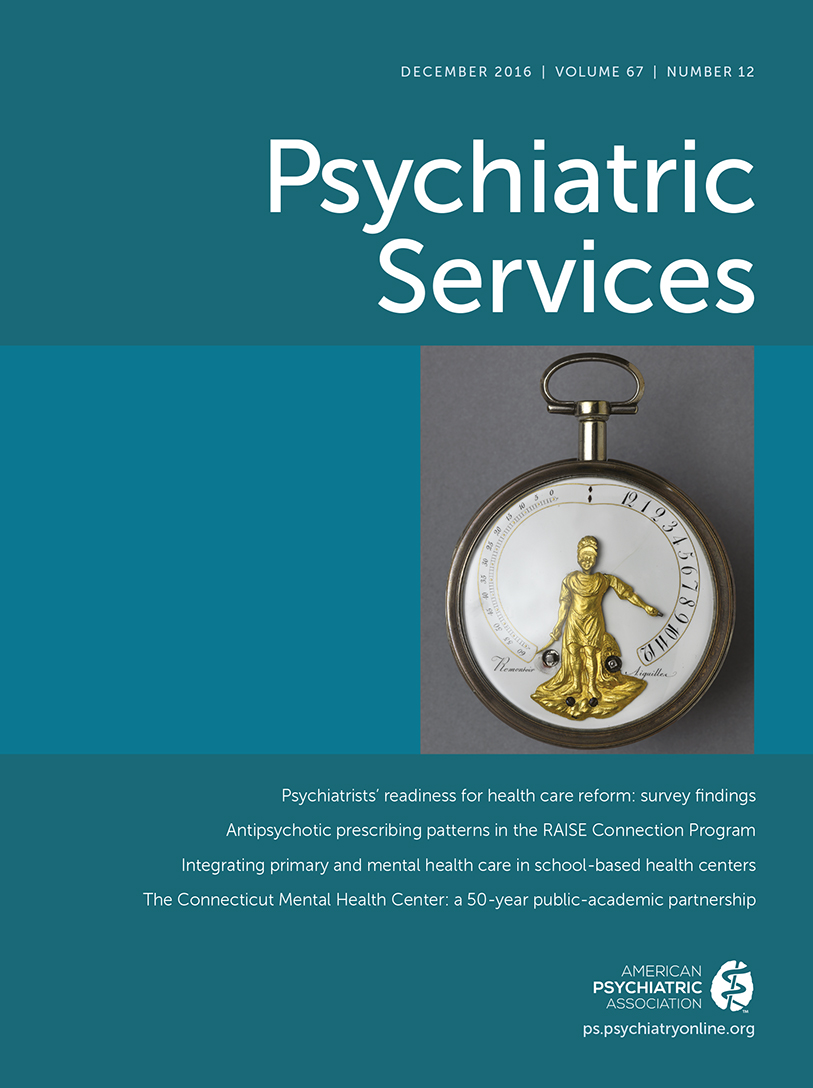2016–2017 Psychiatric Services Achievement Awards
Since 1949, the Psychiatric Services Achievement Awards program has recognized creative models of service delivery and innovative programs for persons with mental illness or disabilities. APA is pleased to announce the recipients of the 2016-2017 awards:
Gold Award (academic program): Massachusetts Child Psychiatry Access Project for Moms
Based in Worcester, the Massachusetts Child Psychiatry Access Project for Moms (MCPAP) is a psychiatric consultation and referral program aimed to promote maternal mental health. The program works to help frontline providers to screen and manage depression of pregnant women and women one year postdelivery. Through toolkits on evidence-based guidelines for depression screening and assessment, access to real-time consultations with psychiatrists, and care coordination with community resources, the MCPAP seeks to build the capacity for more providers to screen and identify depression of perinatal women.—Marcy Ravech, M.S.W., Program Director; Nancy Byatt, D.O., M.S., Medical Director
Gold Award (community-based program): New York Service Program for Older People
Based in New York City, the Service Program for Older People provides comprehensive mental health services for members of the community who are 55 and older. This nonprofit community-based program serves the geriatric population that has a higher risk of hospitalization due to frailty, social isolation, and poverty. The program aims to minimize barriers to access of care, particularly transportation barriers, including providing appointments at partner senior centers and other organizations. The program also provides in-home care for patients who are homebound.—Nancy Harvey, L.M.S.W., Chief Executive Officer
Silver Award: OnTrackNY/WHCS (Washington Heights Community Service)
Based in the Bronx, the OnTrackNY/WHCS program is a multidisciplinary early-psychosis program serving patients in any of the New York boroughs. The program provides recovery-oriented treatment for patients ages 16-30 within two years of their first psychotic symptoms. As a Coordinated Specialty Care model, OnTrack is an evidence-based, team approach that provides services that include medication management, supported education and employment, cognitive and behavioral-based relapse prevention, integrated substance abuse treatment, suicide prevention, care coordination, and family intervention and support.—Nannan Lou, L.M.H.C., and Yael Holoschitz, M.D., Program Directors
Bronze Award: Child and Adolescent Psychiatry for Primary Care
Based at the University at Buffalo, Child and Adolescent Psychiatry for Primary Care is an access and collaborative care program for children and adolescents funded by the New York State Office of Mental Health as a component program of Project TEACH. Five university-based psychiatry divisions (Columbia University Medical Center, Hofstra Northwell Health, University of Rochester, Upstate Medical University, and University at Buffalo) collaborate to utilize one toll-free phone line to provide real-time psychiatric and telepsychiatric consultations for primary care providers. The program also emphasizes formal education for primary care providers and has been the largest provider of continuing medical education of any child psychiatric access program in the country.— David Kaye, M.D., Program Director



